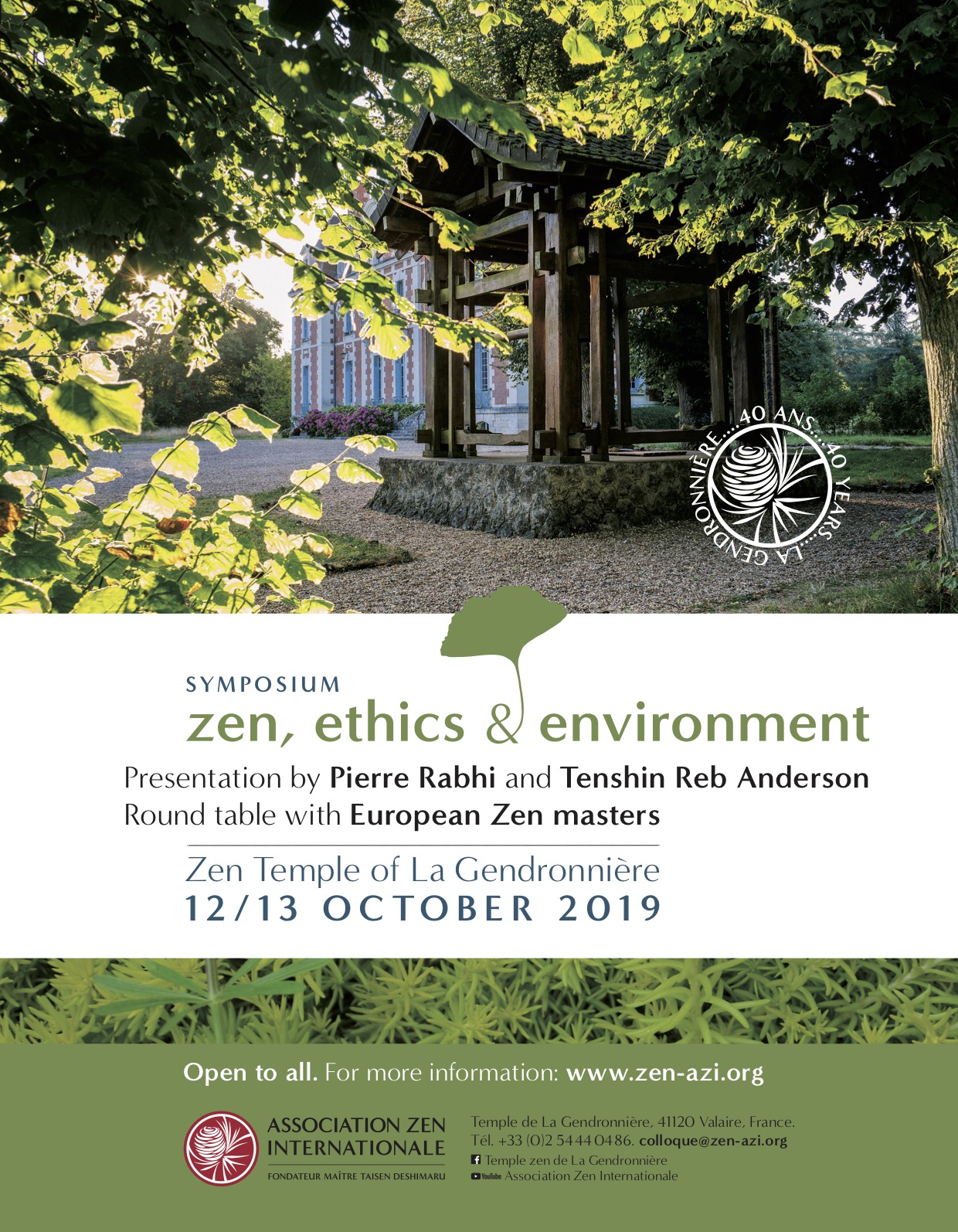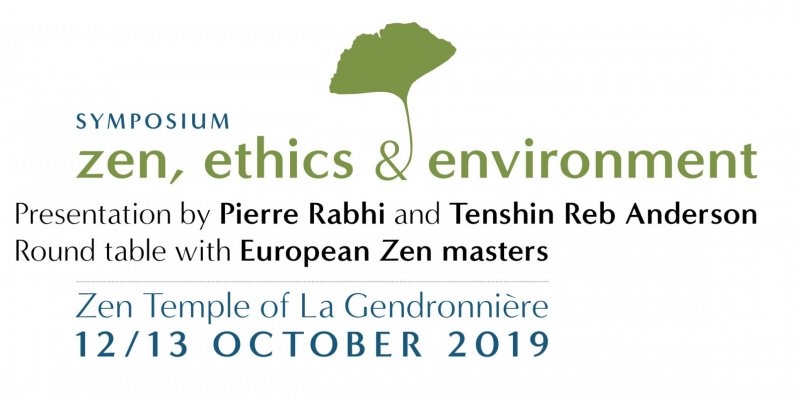
Symposium " Zen, ethic, environement "with Pierre Rabhi
Take the vegetable leaf that you turn in your fingers and build a splendid place where Buddha can reside and make this tiny grain of dust proclaim his Law.”
Master Dogen, the founder of the Soto Zen school in Japan, Tenzo kyokun (Instructions for the Zen cook.)
Presentation
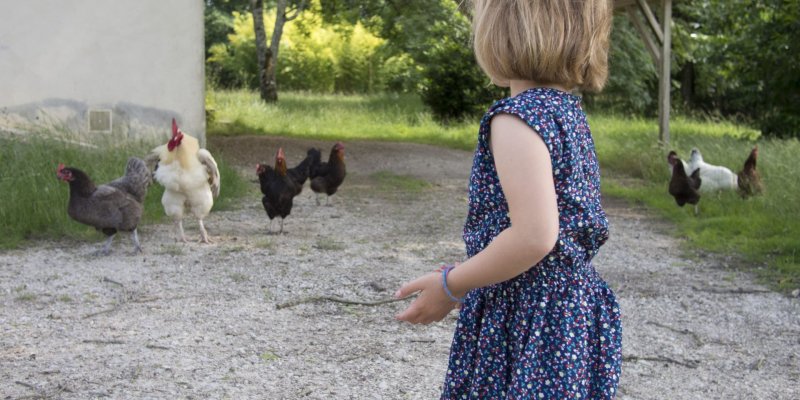
Zen Buddhism is celebrating the fiftieth anniversary of its arrival in Europe. This inherited spiritual tradition, transmitted from India to China and then to Japan is practised today by a very great number of Westerners.
Zen and ethics. Even though zazen, or sitting meditation, is at the heart of practice, Zen Buddhism also gives a central place to ethics. The precepts, or rules for living,are everywhere in the daily life of a Buddhist and the source of all his or her actions, whether of body,speech or thought. A Zen saying states that ‘zazen and the precepts are like the two wings of a bird.’These precepts can be condensed into three great principles, which are disconcertingly simple: ‘ Do no harm, be kind and always act for the good of others.’
Zen and the environment. The ecological crisis, climate change, for which it is no longer debateable that man is responsible, the disappearance before our very eyes of thousands of species of flora and fauna, must cause any human being to really examine their conscience and to change their behaviour and their vision of the world.
The Zen Temple of La Gendronniere – as the majority of zen temples in Europe – embarked upon a system of permaculture some years ago, putting into place an ‘action plan’ that is systematic and global, inspired by natural ecology. In this context, a tradition like Zen Buddhism, bringing in a necessary spiritual dimension, can contribute to the general rise in awareness and propose concrete answers, that can be utilised in everyday life: the practice of objectless meditation, attention brought to all our actions, even the most trivial, a clear awareness of the interdependence of all beings and the deep unity of nature.
This seminar is the chance to encounter a Zen teacher, a specialist in Buddhist ethics and a long time militant in the cause of ecology, and a person who has experimented with initiatives that are both innovative and pragmatic.
During the last morning, Zen teachers, who are Abbots of monasteries, will inform us about their experiences of putting in place concrete solutions concerning the management of places of Zen practice in Europe.
ONLINE REGISTRATION HERE.
Last minute: for health reasons Master Reb Anderson will not be able to be present (contrary to what is indicated in the flyer). Zen master Gérard Chinrei Pilet will replace him on Saturday afternoon (see his biography below).
Programm
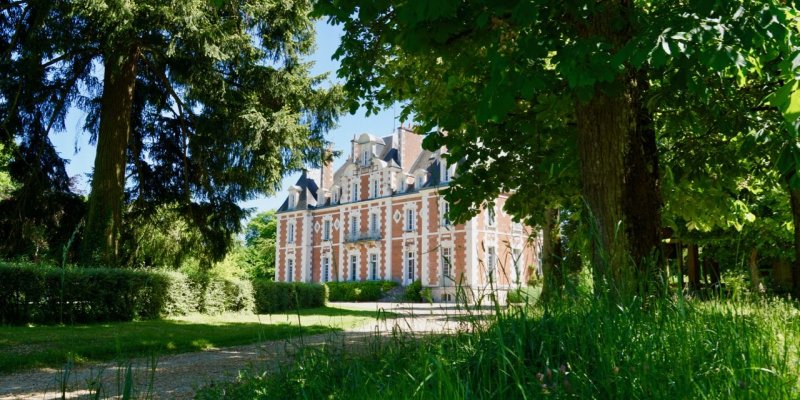 Friday 11 October
Friday 11 October
Arrivée autour de 18 h. 20 h 30 : repas.
Saturday 12 October
6 h 30 : lever
7 h : zazen (méditation zen), cérémonie d’ouverture du colloque
8 h 30 : petit déjeuner
10 h — 12 h 30 : conférence de Tenshin Reb Anderson ( sous réserve ), De l’éthique bouddhiste vers une écologie engagée + Questions-réponses
13 h : repas
15 h-18 h : conférence de Pierre Rabhi, Vers une écologie éthique et spirituelle + Questions-réponses
20 h : repas et soirée conviviale, spectacle
Sunday 13 October
6 h 30 : lever
7 h : zazen (méditation zen), cérémonie bouddhiste
8 h 30 : petit déjeuner
10 h — 12 h 30 : table ronde avec quatre maîtres zen, abbés de monastère zen en Europe
12 h 30 : repas
14 h : fin du colloque
The speakers
Pierre Rabhi
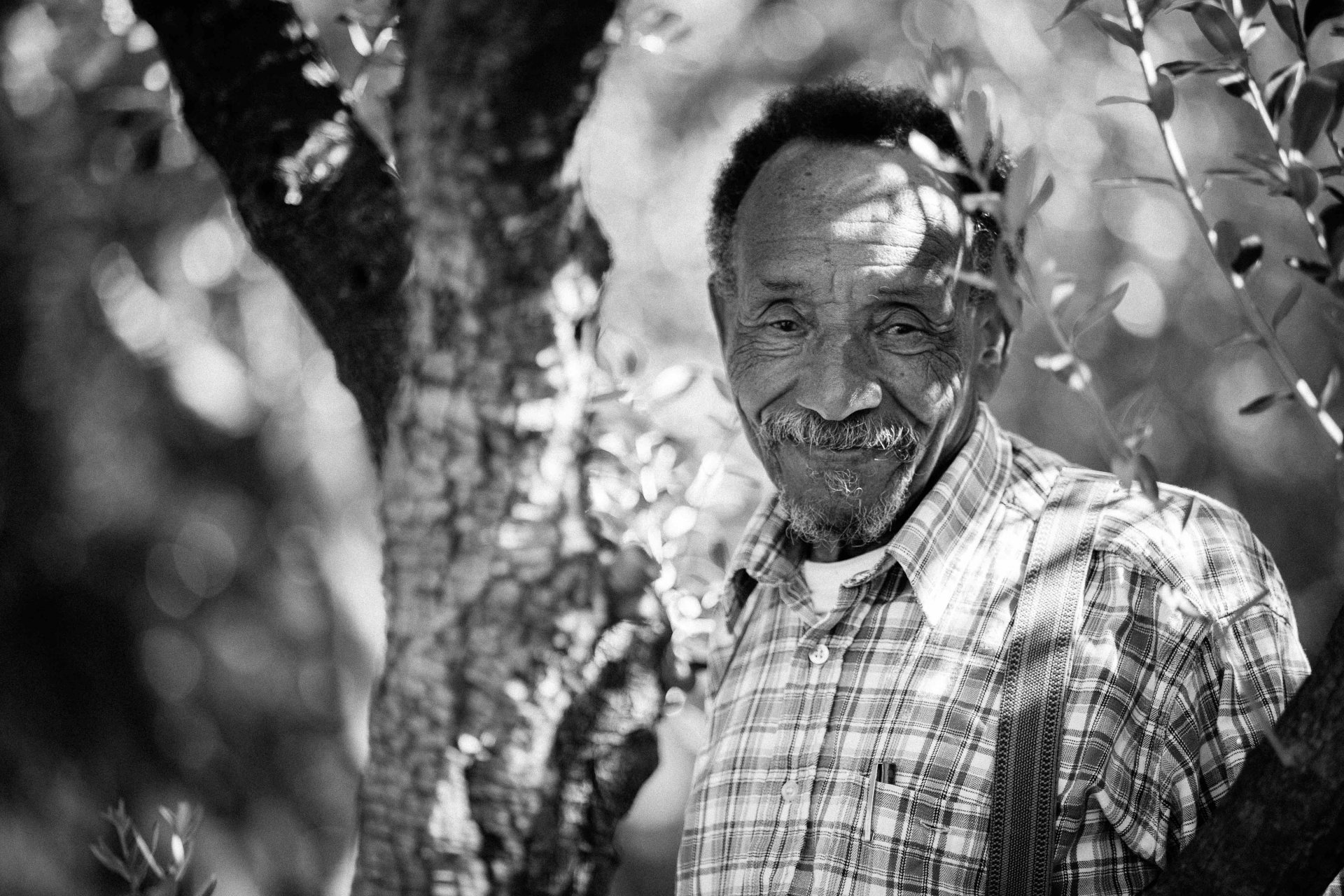
Countryman, writer and thinker, born in Algeria, Pierre Rabhi is one of the pioneers of ecological agriculture in France. Since 1981, he has taken his knowledge to Africa, France and Europe, looking to give communities back control over their food. Pierre Rabhi appeals to the rising awareness of humanity to be its best and stop turning our planet paradise into a hell of suffering and destruction. Before the complete collapse of humanity and the enormous damage inflicted on nature, he invites us to abandon the belief in indefinite growth and to realise the vital importance of our nourishing earth and begin a new ethical way of living, moving towards ‘happy sobriety.’
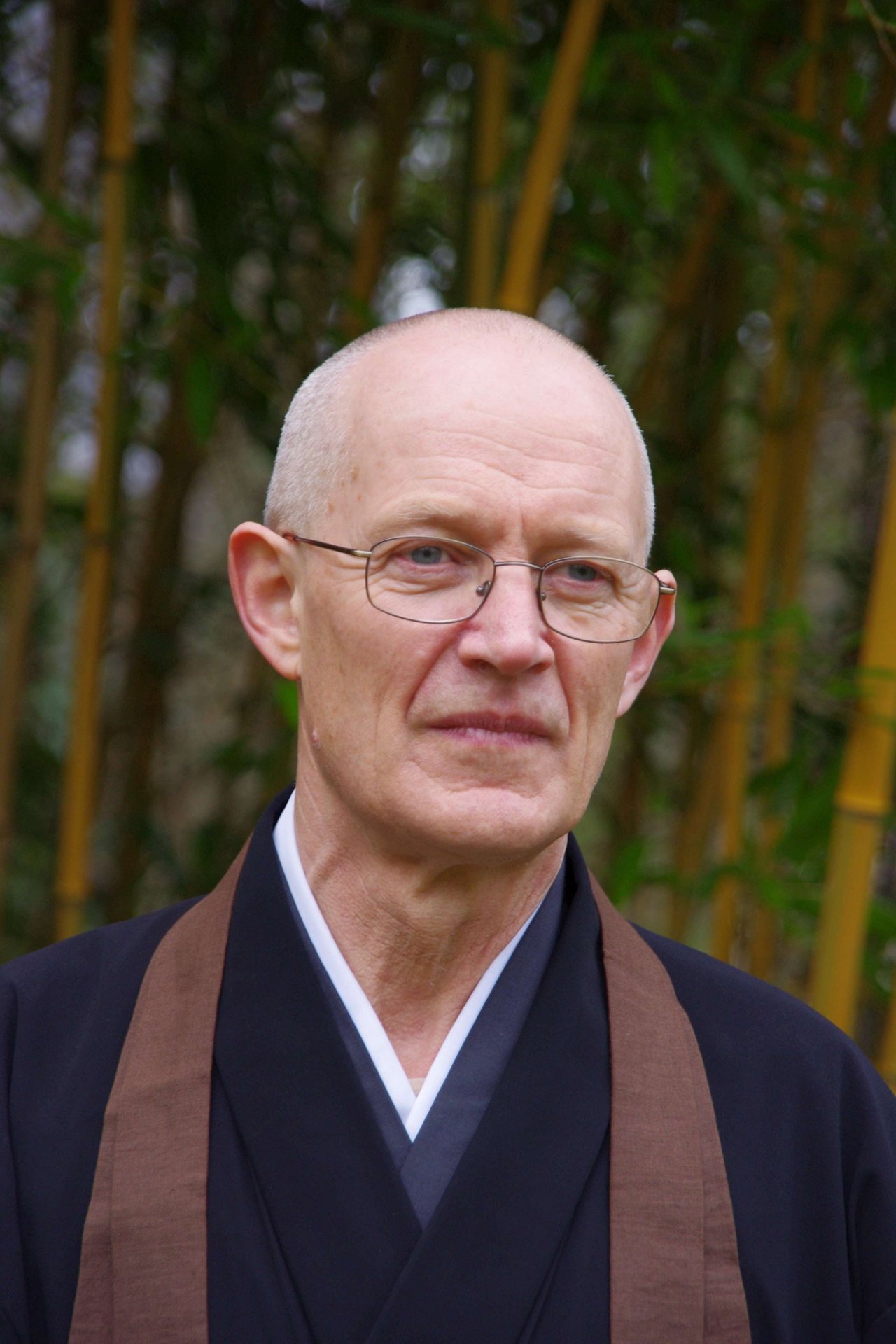 Master Gérard Chinrei Pilet
Master Gérard Chinrei Pilet
A disciple of Master Deshimaru, Gérard Chinrei Pilet taught Dharma at the Zen Dojo in Paris for many years. In 2010 he moved to the Ardèche where he founded the Zen dojo of Annonay, then the Sendan Zen Ji temple. He received the Dharma transmission in 2009 from Yuko Okamoto Roshi.
Download the flyer HERE
Online registration HERE.
WHAT TO BRING?
For meditation
Dark, comfortable and loose clothing (black, brown, navy blue). A meditation cushion (zafu).
For beds
One person's sheets, fitted sheet, pillowcase. Sheets can be rented on site (15 euros). For obvious hygienic reasons, sheets and pillowcases are mandatory, even if you use a sleeping bag.

